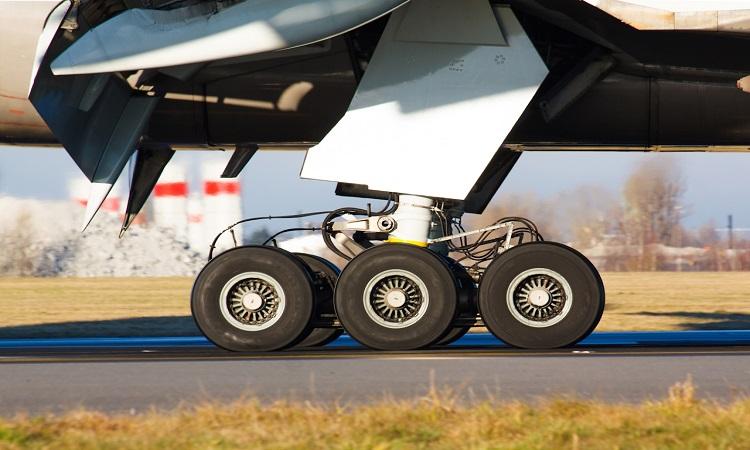Aircraft Gears Market Propelled by Demand for Lighter Components

The Aircraft Gears Market is driven by rising air travel, tech advances, and growing defense spending during the 2026–2030 forecast period.
According to the TechSci Research report titled “Aircraft Gears Market – Global Industry Size, Share, Trends, Opportunity, and Forecast, 2020–2030F,” the Global Aircraft Gears Market was valued at USD 361.6 million in 2024 and is projected to reach USD 494.6 million by 2030, growing at a CAGR of 5.47% during the forecast period. This growth is being driven by a combination of rising global air traffic, ongoing advancements in aircraft engineering, and increasing investments in both commercial and defense aviation sectors.
Market Overview
Aircraft gears are essential components within various critical aircraft systems, including engines, auxiliary power units (APUs), and landing gear mechanisms. They are responsible for transmitting power, controlling movement, and ensuring the smooth operation of numerous onboard systems. As air travel continues to recover and expand following the effects of the pandemic, the demand for high-performance aircraft components has seen a corresponding rise. Aircraft manufacturers and operators alike are increasingly emphasizing system efficiency, weight reduction, and maintenance optimization—all of which are directly influenced by the performance and quality of aircraft gears.
In today’s highly competitive aviation industry, there is a growing focus on reducing fuel consumption, improving safety, and minimizing maintenance-related downtimes. Advanced gear systems, made with cutting-edge materials and precision engineering, play a crucial role in meeting these objectives.
Technological Advancements Driving Innovation
Recent developments in materials science and manufacturing processes are transforming the landscape of the aircraft gears market. Manufacturers are shifting toward the use of lightweight, high-strength materials such as titanium alloys and composite materials, which enhance gear durability while reducing overall aircraft weight. These improvements contribute to better fuel efficiency, reduced carbon emissions, and lower operational costs—key priorities for commercial airlines and military fleets.
Moreover, there has been significant progress in gear design technologies, aimed at reducing friction and wear and increasing transmission efficiency. Innovations such as surface treatments, high-precision machining, and smart monitoring systems enable longer component lifecycles and predictive maintenance strategies. As a result, airlines and aircraft operators benefit from lower maintenance costs and improved fleet availability.
Market Segmentation
The global aircraft gears market is segmented based on platform, gear type, application, end user, and region. Among these, the end user segment is a critical area of focus, divided into two primary categories: Original Equipment Manufacturer (OEM) and Aftermarket.
OEM Segment
The OEM segment involves the supply of gears during the manufacturing of new aircraft. Aircraft manufacturers require precision-engineered, highly reliable gear systems to integrate into engines, landing systems, and auxiliary systems of next-generation aircraft. This segment is heavily influenced by trends in aircraft design and production rates, with demand directly linked to new aircraft deliveries. OEMs work closely with component suppliers to ensure compliance with strict aviation safety and quality regulations, as well as to adopt newer, more efficient gear systems that align with evolving industry standards.
As newer aircraft models incorporate more advanced materials and avionics systems, OEMs are placing greater emphasis on gear systems that are lighter, more durable, and easier to integrate into digitally connected systems. Additionally, retrofitting older aircraft with upgraded gear systems is becoming a key area of OEM growth.
Aftermarket Segment
The Aftermarket segment comprises the supply of replacement gears and maintenance services for in-service aircraft. This includes scheduled maintenance, repairs, overhauls, and upgrades. Aircraft components such as gears undergo significant wear and tear over time, making their replacement and upkeep vital for safety and operational efficiency.
This segment plays an indispensable role in maintaining the global commercial and military aircraft fleet. Airlines rely on high-quality aftermarket services to maximize aircraft uptime and extend service life, while military operators prioritize performance and readiness. As the global fleet of aircraft ages, the demand for aftermarket parts and services continues to grow, further supporting the overall expansion of the market.
Importantly, the OEM and aftermarket segments are interdependent—while OEMs drive innovation and new product development, the aftermarket ensures long-term support and sustainability of aircraft gear systems throughout their lifecycle.
Browse over XX market data Figures spread through XX Pages and an in-depth TOC on "Aircraft Gears Market"
https://www.techsciresearch.com/report/aircraft-gears-market/27307.html
Regional Insights
Regionally, Asia-Pacific is expected to be the fastest-growing market for aircraft gears over the forecast period. Several factors contribute to this regional surge, including the rapid development of aviation infrastructure, the growth of low-cost carriers, and rising passenger traffic across countries such as China, India, and Japan.
China and India are witnessing a sharp increase in both domestic and international air travel, prompting airlines to expand and modernize their fleets. Additionally, government investments in airport development and aerospace manufacturing capabilities are further supporting market expansion. Japan, South Korea, and Southeast Asian nations are also contributing to the demand for technologically advanced and fuel-efficient aircraft, thereby increasing the need for high-performance gear systems.
The region's growing military aviation spending and focus on indigenous aircraft development programs are further propelling demand for aircraft components, including gears. As governments push for local production and self-reliance in defense capabilities, the demand for locally sourced aircraft parts, including precision gear systems, is expected to grow steadily.
Future Outlook
Looking ahead, the global aircraft gears market is poised for sustained growth, supported by favorable trends in commercial aviation, increased defense spending, and ongoing technological innovation. The continuous emphasis on efficiency, durability, and reduced environmental impact will drive manufacturers to
- Art
- Causes
- Crafts
- Dance
- Drinks
- Film
- Fitness
- Food
- Jeux
- Gardening
- Health
- Domicile
- Literature
- Music
- Networking
- Autre
- Party
- Religion
- Shopping
- Sports
- Theater
- Wellness
- Travels

